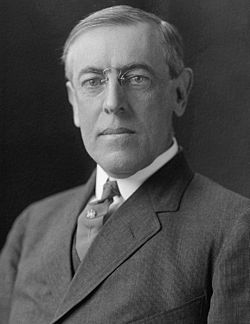| ||||||||||||||||||||||||||
| ||||||||||||||||||||||||||
 County Results Wilson 80–90% 90–100% | ||||||||||||||||||||||||||
| ||||||||||||||||||||||||||
| Elections in South Carolina |
|---|
 |
The 1912 United States presidential election in South Carolina took place on November 5, 1912, as part of the 1912 United States presidential election which was held throughout all contemporary 48 states. Voters chose 9 representatives, or electors to the Electoral College, who voted for president and vice president.
Contents
South Carolina was won by the Democratic nominees, New Jersey Governor Woodrow Wilson and Indiana Governor Thomas R. Marshall. Wilson and Marshall defeated incumbent President William Howard Taft, and his running mate Vice President James S. Sherman and Progressive Party candidates, former President Theodore Roosevelt and his running mate California Governor Hiram Johnson.
Wilson won South Carolina by a landslide margin of 93.37%.


